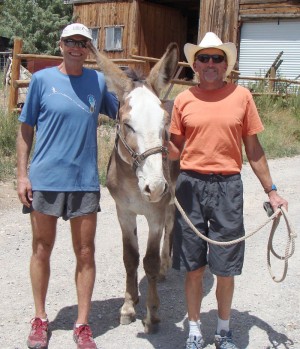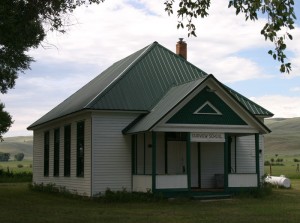By John Mattingly
When I started farming back in the late 1960s, I had a little time in the winter, during which I started writing. It became my hobby. A lot of farmers are able to pull a hobby out of their profession by fixing up antique tractors, or tinkering with various kinds of collections, or restoring old guns, but I settled on writing.
For one thing, writing was a cheap hobby. There was almost no overhead. For the cost of a used typewriter and reams of paper, I could stay occupied for the deepest stretch of winter. Basically, I did farming work from Valentine’s Day to Thanksgiving, and from Thanksgiving to Valentines Day, I wrote. Once the ground started to thaw in February, I got back in my overalls and re-dedicated to the deeds of the ground until after a big meal at the end of November. I then turtled up in my house, a converted saltbox barn with a big wood stove, and put keys to paper.
I didn’t like poetry; thought of it as some sort of short cut. Mostly, I stayed with short stories, but couldn’t resist an annual attempt at a novel. My favorite writers, whom I studied and learned a lot from, were Larry McMurtry, John Nichols, Franz Kafka, and Louis Bromfield.
Much as I enjoyed sitting down with a stack of blank pages, a cup of hot coffee, and a story running around in my head, it turned out my hobby wasn’t viewed with the same enthusiasm by my farmer neighbors. These were men I worked with in some capacity during the farming season, and from whom I’d learned a lot. Being a young man in the community, I wanted to be liked and respected. Writing was not a hobby choice that furthered these youthful ambitions.
Other farmers saw my pickup sitting outside my house for days on end during the depths of winter and stopped by to be sure I hadn’t keeled over and died in the bathtub. When they asked what I was doing, I tried to avoid telling them, but eventually I had to admit that I was writing.
One old boy told me that he hoped I’d get over it. “That’s a shame,” he said. “Friend of mine, name of … who was that? Oh yeah, Fred, he fell into writing right after he got snakebit. Wasn’t worth a damn for anything else.”
Another neighbor told me about Ernie, who got tangled up in his PTO shaft and was confined to a wheelchair. “Poor bastard, all he could do was write mysteries. Sold a few from what I heard.”
It was as if writing was a pointless pursuit, or something a person did who was short on options. At best, writing was simply bullshit – something in plentiful supply out in the corral.
Too, the late 1960s and early ‘70s in the farming community where I grew up, farmers relied very heavily on their “word,” as in, “A man’s word is his bond.” Writing an agreement on a piece of paper implied you didn’t trust the person you were dealing with. Lawyers wrote things, honest men spoke their contracts and honored them. The fact that I was putting a lot of time into writing conveyed more suspicion than curiosity upon me, as if, perhaps, I was cooking up something whose only purpose might be to trick them. To this day, there are farmers who distrust any agreement written on paper, even though in today’s economy, most deals have become more complicated, such that committing the particulars to paper is mutually beneficial.
As the years rolled along, some of the farmers in my community realized I was pretty serious about writing. I got a few articles published in some of the farm trade magazines. I never got the impression that my neighbors read anything I wrote, but they saw my name atop a large number of words, and became slightly more tolerant of my misdirection.
Once in a while, a neighbor would get the idea that what I really needed was for him to sit and talk to me all afternoon. You know, keep me company, give me ideas for an article. I admit that I got a wealth of stories and really good information from this kind of generosity, but there were times when I had to make up excuses to encourage departure.
Less often, a modestly curious neighbor might venture to ask: “How many pages have you ever written?”
I understood why a farmer would ask this question because farming is a business of numbers and volume – bushels and tons to the acre, pounds to the bin, head to the bunk. The problem with writing is no matter how many pages I wrote, the pile always looked pathetic. A novel of some three hundred pages wasn’t even as thick as a flake of hay. When I pointed to a novel on my desktop, I actually felt embarrassed, and so did the person who asked to see it.
I’ve never liked the question about pages, even when asked, or expressed, by other writers whose collegial support was assured. When someone starts out telling me, “Oh, I’m up to two- hundred-and-thirteen pages,” it sounds phony to me, even though I know it’s probably true, and it’s also true that every one of those pages probably contains more blood, sweat, and tears than you could drain from an ox, and enough emotion to fill a field.
Nevertheless, I’ve always felt that discussions of page volume should stay in the field. My prejudice is that writing isn’t about how many pages a person can write per hour, per day, or even per lifetime. It’s about something else, and I have no idea what it is.
But the biggest question, and perhaps the largest concern expressed by my farmer neighbors about my writing was this: “So … did what you wrote about really happen?” Or the other variation, “Is it based on a true story?”
If you think about it, even a lie is based on a true story, such that a good lie is even more believable than the truth. People often justify the truth by claiming that the statement or action at issue is “impossible to make up,” a justification I’ve always found lacking, given the unbelievable spectrum of imagination I’ve seen expressed by my fellow human beings.
One night, after a long and wandering discussion with Oliver and Wayne, guys with whom I’d done considerable farming business, a night in which a fifth of Wild Turkey had somehow leeched into our collective bloodstreams, our talk turned to writers and liars.
Oliver told a couple of stories along the theme of “The First Liar Doesn’t Have A Chance.” Wayne decided to mix up some old lawyer jokes, putting writers in place of the dreaded attorney, concluding with the one that goes, “You can tell when a writer is lying, because he’s writing.”
Jokes went on for while until Oliver looked at me. “So what do you do for those articles, Son? Sit there and sh#! milk?”
I looked at the two of them, staring at me with drunken graciousness, obviously seeing how far they could push me. Their smiles were wide and hopeful that I might finally betray my hobby and declare it no different than what comes out the back end of a bull.
The overhead light flickered, then shone in my eyes, blinding me with one of those Road to Damascus moments … I went into a long, Wild Turkey ramble, explaining that, as a writer, I was always aware of the Linnean system, which provided not only a taxonomy of all living things, but also a taxonomy of Lies.
I explained to my good neighbors that there were two kingdoms of lies, Abstract and Factual. Abstract lies were like myths, stories we knew weren’t literally true, but conveyed truths that couldn’t be told by facts alone. Like Creation Lies. None of us was there at the Big Bang or in the Garden of Eden, but we believe these lies, and repeat them over and over because they provide us with a greater truth about our existence on earth.
Unable to stop myself, I went on, speaking about Factual lies, which are no more than careful re-arrangements of the facts. Presuming, of course, that we can agree on what the facts are, after we drill deeper into the taxonomy of lies, which has Phylum, Class, and Order: Omission, Intention, and Confusion, followed closely by their Family, Genus, Species, and Sub-species: Harmless, Necessary, Malicious, and Stupid.
I elaborated, pointing out that politicians like the Factual-Confusing-Malicious Lie. Military is famous for the Abstract-Omissionary-Necessary Lie. Religious people love the Abstract-Confusing-Harmless Lie. And then are some people who can’t tell truth from fiction. These people tell Factual-Intentional-Stupid Lies. In other words, they tell a lie when the truth would actually serve them better.
“Thus,” I concluded, “if you’re following me, there are twenty-four different kinds of lies, each of them running free like a wild dog, and as a writer, I wake up every day and have my pick of the litter.”
There was, as I recall, a long silence.
Finally, Wayne and Oliver confirmed the bottle of Wild Turkey was empty, then found their feet to leave.
“Dang it, Son,” Wayne concluded, “all that writin’ sure did teach you how to put the ‘b’ in subtlety.”
From that night forward, my neighbors finally accepted my hobby as one that I was loathe to lose, and a little tolerance followed. Years later, I happened to overhear the highest possible compliment from a farmer, “The man writes. It gives him something to do.”
John Mattingly cultivates prose, among other things, and was most recently seen near Creede.



